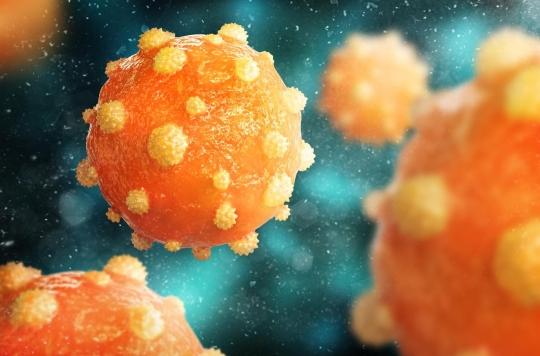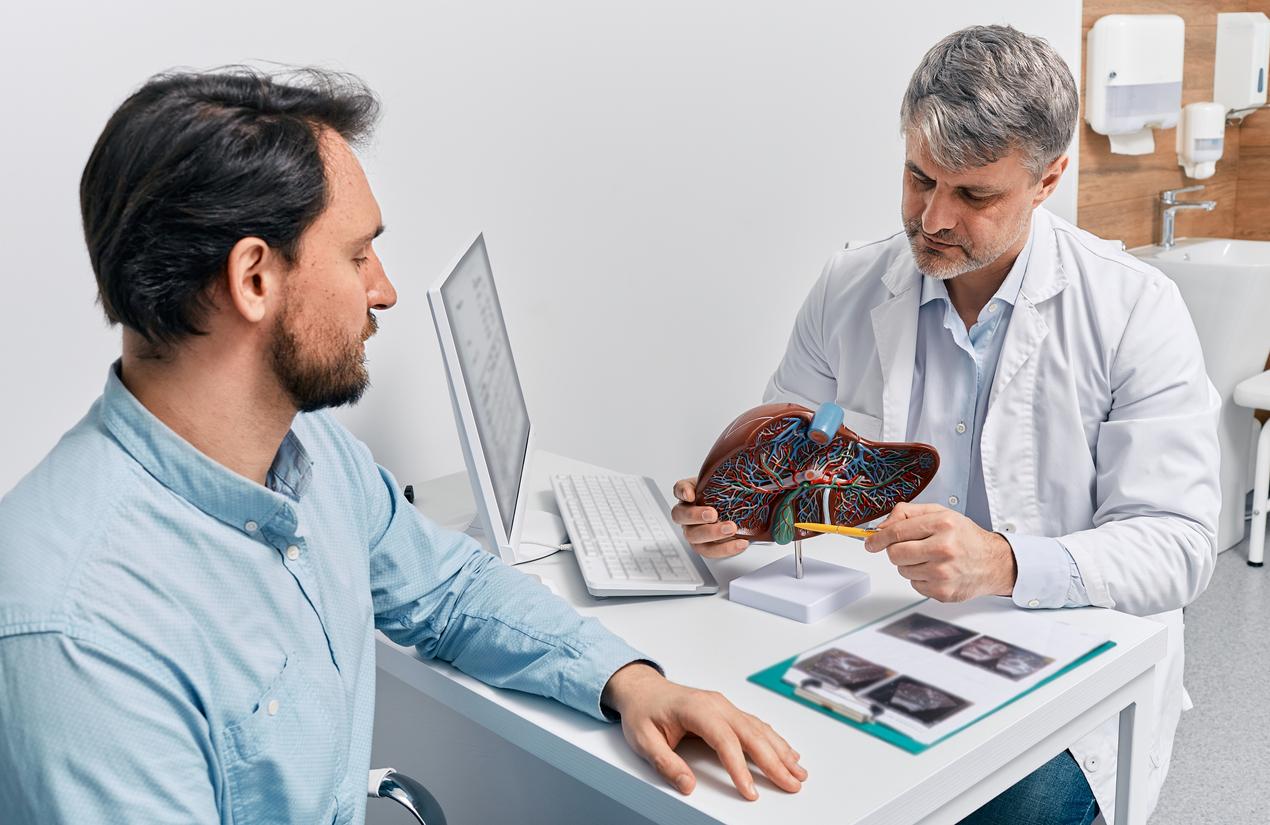Researchers have just developed a new tool capable of analyzing the microbiome in stool samples and thus detecting chronic liver diseases with 90% reliability.

- Researchers have developed an algorithm capable of detecting disturbances of the intestinal microbiome in the stool.
- Their reliability is estimated at 90%.
- Its reliability is 90% in screening for hepatic cirrhosis.
CirrhosisNASH, cancer, hepatitis… According to the World Health Organization (WHO), chronic liver diseases affect approximately 844 million people worldwide and are among the leading causes of death in many wealthy countries.
Yes the alcohol, obesity, overweight and under-vaccination are pointed out as the main factors of chronic liver disease, the difficult diagnosis of these diseases is also to be deplored. Invasive and painful biopsies are not always reliable to detect liver damage. As for MRIs, they are expensive and often difficult to perform in rural areas.
To improve the detection of these silent and insidious diseases, a team of researchers from the University of San Diego and the Salt Lake Institute (USA), has created a new diagnostic tool based on the microbiome capable of identifying with a 90% reliability fibrosis and cirrhosis of the liver. Their work has just been published in the journal Cell Metabolism.
A universal mircobiomic signature
“The microbiome is a living, dynamic sensor of small changes in body health and disease, and as such provides an accurate readout of body health.”explains Professor Ronald Evans, co-author of the work.
Inexpensive and non-invasive, this new diagnostic method is based on an algorithm for analyzing patient stool samples that could “be widely used, especially in the many regions that lack specialist clinics and doctors. It could simply be a game-changer, with global implications.”
Based on a “microbiomic signature” of the disease, this test is able to detect up to 19 bacteria present in the stool and responsible for chronic liver diseases, in particular cirrhosis and fibrosis. A total of 163 samples from healthy and sick volunteers were analyzed. The microbiome signature was associated with a diagnosis of cirrhosis with 94% accuracy and was able to accurately identify cirrhosis in more than 90% of patients.
The microbiomic signature could also determine the stage of liver fibrosis, which would allow doctors to classify patients according to disease stage and improve treatment strategies.
“These results demonstrate that it is possible to use the algorithms to identify a universal signature that can be used to establish the precise diagnosis of a disease, such as cirrhosis of the liver.said Tae Gyu Oh, first author of the article. The patterns we found reflect the complexity of the microbiome and how gut health likely affects disease.”
Further research is planned to investigate the link of cause and effect between the microbiome and liver disease and checking whether restoring certain parts of the microbiome leads to regression of the disease or whether eliminating certain bacteria makes it worse. The researchers also hope that this approach can be used to diagnose other diseases, such as inflammatory bowel disease, colon cancer, Alzheimer’s disease and other conditions that have been shown to affect them. are likely affected by a dysregulated microbiome.
.















